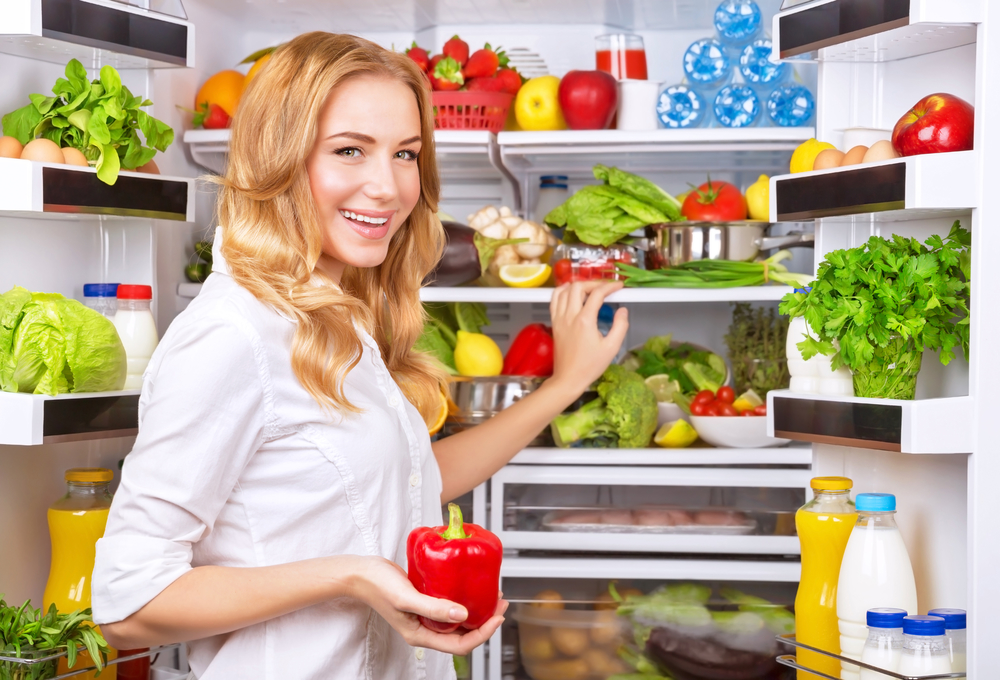Mother Nature has a tendency to be unpredictable, particularly when it comes to things like natural disasters. In 2020, the US experienced a record-breaking 15 hurricanes, surpassing the total amount of storms in 1969.
Many of us are unprepared if we must remain in our homes for an extended amount of time waiting for a storm to pass.
Our neighborhood grocery store’s while usually very well stocked for the normal amount of consumption can easily run out of food and necessities when a storm approaches and everyone stockpiles.
Stocking up on nutritious emergency food items is a great idea to help you stay ahead of anything that future circumstances can throw at you!
Why Nutrition Counts in an Emergency
In an emergency like the coronavirus pandemic of 2020, it is especially vital to consume foods rich in nutrients in order to stay healthy. Quality nutritious food is more important than the quantity of food you have.
In a disaster you need good nutrition, fiber and necessary calories. Each of us has varying caloric needs, you should know how many calories it takes for someone of your age, height and weight to maintain health. This number is often called your BMR or Basal Metabolic Rate.
Keeping your diet as normal as possible can help alleviate any extra stress on your system. But keep in mind you want to meet all your nutritional needs protein, carbs, and healthy fats along with necessary vitamins and minerals.
What to Always Keep in Your Pantry
These food items have long shelf lives and can stay fresh for long periods of time, even when it isn’t a time of year when natural disasters occur. Create a catalog of all the stored items and examine the expiration dates at least once every six to twelve months to ensure they remain current. Remember to keep a can opener handy at all times so that you can actually access all of the food that you have stored.
Peanut Butter
Peanut butter is filled with beneficial fats and protein, making it an excellent energy source. Unless the instructions on the jar tell you to do so, you don’t need to put it in the fridge after opening.
Peanut butter is relatively inexpensive and a good vegan-friendly source of protein.
Whole-Wheat Crackers
Crackers make an excellent alternative to bread, and are great to use when making sandwiches. Crackers made from whole wheat or whole grains have less of a lifespan on the shelf than regular crackers, so it is important to look at the expiration date on the box. Although these crackers will not last as long, they have more fiber which benefits you when you’re especially hungry! Consider vacuum-packing your crackers to prolong their freshness.
Stay away from crackers that have high-fructose corn syrup as an ingredient. High-fructose corny syrup is not good for your health.
Nuts and Trail Mixes
Have a good supply of these nutrient-dense food products handy – they are beneficial to your health and easy to snack on during an emergency such as a hurricane or tornado. Search for vacuum-sealed containers to keep the nuts from oxidizing and staying fresh.
Cereal
Opt for multigrain cereals that come in individual packages so they don’t spoil upon opening.
Granola Bars and Power Bars
These snacks, which are both nutritious and satisfying, typically remain edible for six months or longer. Plus, they’re an excellent source of carbohydrates.
Read More: 21 Healthy And Nutritious Protein Bars For Kids
Dried Fruits, Such as Apricots and Raisins
When there is no fresh produce available, these wholesome snacks provide potassium and dietary fiber. Swanson states that dried fruits offer a significant amount of vitamins and energy.
Obtain all the dietary benefits by purchasing an assorted pack of Crispy Fruit. Within the container, there are bags of freeze-dried apples, Asian pears, and tangerines. All packs are exclusively composed of fruit with no preservatives, sweeteners, or additional ingredients.
Canned Tuna, Salmon, Chicken, or Turkey
Canned meats are known to last a minimum of two years in the cupboard and are an important source of protein.
Wild caught canned seafood usually has less mercury than farm raised. Mercury consumption is not good for anyone but particularly not good for children and pregnant women.
Tuna now comes in pouches and the shelf life is also very good.
Canned Vegetables, Such as Green Beans, Carrots, and Peas
When the actual thing isn’t feasible, canned kinds can furnish you with vital vitamins and minerals, making this an excellent hurricane meal or emergency option. To get an abundance of essential vitamins and minerals in your diet, buy a selection of canned vegetables. You’ll find a healthy and balanced meal in the tin with peas, carrots, corn, lima beans, and green beans all included.
Canned Soups and Chili
It is possible to consume both soups and chili straight from the can without preparation and they offer a wealth of nutritional value. Look for low-sodium options.
Dry Pasta and Pasta Sauces
Although it contains a lot of carbs and gluten, pasta can be quite filling and the dry kind and sauce stored in jars can last for months when stored in the pantry. If there are any special dietary needs within your family, try to find gluten-free pasta or pasta created from chickpeas (or any other substitute).
Bottled Water
It is recommended that you keep a supply of at least three days worth of water, with a minimum of one gallon per person needed each day. A person with a normal activity level should consume at least half a gallon of water daily. The remaining half gallon is intended for use in cooking and cleaning.
Keeping some electrolyte products handy to either add to your water or to drink on their own is not a bad idea. Electrolytes assist with hydration.
Sports Drinks, Such as Gatorade or Powerade
Sports drinks contain electrolytes and carbohydrates that help to rehydrate you. Be certain that your preferred sports drink has no additional substances, like sugar or fake sweeteners.
Coconut water is also a tasty way to quench your thirst and has health benefits.
READ MORE: 18 Health Benefits Of Coconut Water
Powdered Milk
You should keep this replacement for calcium and vitamin D if refrigerated dairy isn’t feasible, as it provides a great source of both nutrients. Go for an organic, resealable option and can remain consumable for a considerable amount of time when placed in a cool, dry environment after being opened.
My grocery offers powdered milk in boxes that contain quart sized envelopes inside. This allows you to make milk as you need since electricity is not always available during a crisis.
Vitamins
It may sound unbelievable, but vitamins are an important component of this nutritionally balanced survival diet. It may not come to mind as an edible item, but it is definitely necessary.
You may not be able to predict the amount of time you will go without electricity or access to fresh food, so it is critical to have multivitamins in your emergency kit. An emergency supply of vitamins can help make up for the shortage of nourishment which may not be obtainable during a crisis.
These will also increase your body’s defenses and the nutrition you get from your nutritious emergency supplies.
Best Healthy Survival Vitamins:
- Vitamin A – supports bone health, enhances vision, and supports the immune system.
- Vitamin B1 – is essential for glucose metabolism and plays a critical role in nerve, heart, and muscle function.
- Vitamin B2 – helps break down fats, carbohydrates, and proteins, and boosts your body’s energy supply.
- Vitamin B3 – is essential for proper metabolism, antioxidant protection, and nervous system function.
- Vitamin B5 – is critical for manufacturing red blood cells and hormones.
- Vitamin B6 – is essential for healthy brain development and immune system function.
- Vitamin B7 – supports hair, nail, and skin health.
- Vitamin B12 – keeps your body’s blood and nerve cells healthy.
- Vitamin C – is vital for the growth, repair, and development of all body tissues.
- Vitamin D – helps your body absorb and retain calcium and phosphorus, which is essential for healthy bones.
- Vitamin E – is necessary for reproduction, vision, and the health of your skin, brain, and blood.
- Vitamin K – enhances effective blood clotting and building of bones.
Baby Food & Formula
If you have a young baby, it is important to stock up on nutrient-rich baby food and formula to ensure its growth and development.
No little ones in the house? Adults can likewise take advantage of the nourishment that baby foods offer.
A jar of baby food typically contains between 50-100 calories, making it a convenient way to temporarily satisfy your hunger until you can have a more substantial meal. This will also extend the shelf-life of your healthy survival food.
Dried Meats—a.k.a., Jerky
Every prepper food kit should include dehydrated meat. Jerky is an ideal item to have in a prepper pantry due to its exceptional long-term storage capabilities. Different types of jerky can be created with a range of proteins; such as beef, elk, bison, fish, turkey, venison and duck which all have a wonderful taste and are beneficial for your diet.
Dehydrated meats are clearly a major source of protein but they also provide key vitamins like B3, B6, B9, and B12. Jerky is loaded with minerals including calcium, magnesium, phosphorus, potassium, sodium, and sulfur.
It is food with an extended shelf life and filled with nutrition and not preservatives.
It is Certified Organic, certified non-GMO, with gluten free options. Healthy food that does not need to be kept frozen or refrigerated.
Pre-configured packages for you to be able to feed everyone in your house.
- Shelf-Life: Purium superfoods can last two years on the shelf and still hold high nutritional value.
- Ease of Preparation: Although Purium can last up to two years on a shelf, it only takes two minutes to prepare. You just need water and a shaker bottle – BOOM, you are set!
- Macronutrients: Products like the Power Shake contain essential protein and fats to help you body create and store energy.
- Cost: After paying one upfront cost, you have access to nutritious foods for only mere dollars a day. Our packages come out to about $11/day for kids, $16.25/day for teens and adults.
- Quality: Our foods are certified organic. Our products don’t have GMO’s, but they do have nutrients of course!
- Immunity support: These packages include specially formulated products that may boost your immune system.
Get one for 30 days of food and immune support for every member of your family.
Tips for Making Your Survival Foods Last Longer
The best survival foods have a long shelf life. For instance, some of our freeze-dried and dehydrated meals can stay viable for more than 25 years!
Aside from the fact that your survival food is created to remain fresh for an extended period, there are steps that you can take to ensure that it remains optimally fresh for longer, as well as to ensure that your emergency food supply is kept neat and tidy.
- First in, First Out (FIFO)
The replenishing of items is a key component of maintaining a prepared larder that is current. When you put more items on the shelves, make sure to store the newer merchandise or fresher items towards the rear. This will ensure that you prioritize older items and prevent spoiled food.
- Store Foods in Glass Containers
Glass containers are ideal for pickling and canning. They do an excellent job of keeping stains and smells from lingering compared to plastic or metal products. If you want to reheat the meals stored in the glass container, they can be reheated quickly and safely in the microwave.
- Understand Expiration Dates
It is not accurate to think that food expiration dates are indicative of how safe a food item is; instead, they are an indication of its quality. Essentially, some food items that have passed their expiration date may still be safe to consume. They just might not be the highest quality.
“Sell-by dates indicate the maximum time an item should remain on display in the store.” It is suggested that the item will be at its most flavorful and excellent quality if used by the date identified. The date of expiry is when the food item has gone beyond its optimal quality. Even if the food is past its “sell by” date, it can still be used as a part of your emergency food supply.
- Know What to Refrigerate and What Not to Refrigerate
Storing certain food items in the fridge or freezer is a great way to ensure they stay fresh and tasty for a longer period of time. You should not put certain foods in the refrigerator or freezer as they will rot more quickly.
Tomatoes are not meant to be stored in the refrigerator since they deteriorate in flavor when kept there, so it is advisable to store them on the counter instead. Basil is another kind of edible item that should not be placed in the refrigerator. Instead, you should hang it up to dry.
You can put broccoli, berries, apples, celery, jams, and nut butter in the refrigerator for safe storage.
- When in Doubt, Make It Into a Stew
Vegetables that are starting to appear aged can still be consumed. You don’t need to get rid of any excess food (such as carrots, potatoes, onions, or other robust veggies) that you may have. They are ideal for creating a broth, soup, or stew.
- Label Everything
Putting labels on everything will assist in keeping your emergency foods and other supplies orderly. Being aware of the exact spot and amount of an item is really advantageous, especially when dealing with a nerve-wracking situation.









